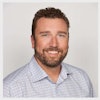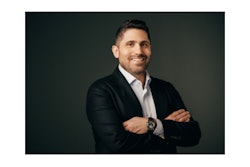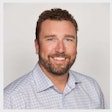The Yankee Dental Congress Multi-Site Summit in Boston brought together leaders in the emerging dental group space, offering key insights into the challenges and opportunities of scaling a dental organization. Panelists shared firsthand experiences on organic growth, financial strategies, technology adoption, and patient experience.
Scaling challenges and solutions
One of the primary lessons shared by the panelists was that scaling a dental group requires more than just adding locations.
 Adam Richichi.
Adam Richichi.
"We focus on organic growth from creating convenience, expanding access to services, and creating patient consumer evangelists," Adam Richichi, MBA, CEO of Archway Dental Partners, a group with 35 associated locations, said. Their group adds additional lines of services, including specialty care to foster growth.
Dr. Mark Doherty is the CEO of D4 Practice Solutions, a partner in Southeast Endodontics, and the owner of Commonwealth Mobile Oral Health Services, which serves more than 300 schools in Massachusetts. He highlighted the importance of strong operating procedures and standardized systems to facilitate communication across different settings.
Drs. Abhishek Nagaraj and Anushka Gaglani, co-CEOs of Areo Dental Group, agreed. They shared how they've put systems in place around everything from answering the phones to scheduling to creating a formulary for their privately owned group with seven affiliated locations in Chicago.
Nagaraj also highlighted the success of membership plans, which increased both patient volume and revenue per visit at Areo Dental.
Financial strategies: Understanding the numbers
Financial discipline emerged as a recurring theme. Richichi stressed the importance of doctors understanding profit and loss reports. He advocated for a backward financial model, where a group starts with a vision -- such as expanding to four practices -- and builds a budget accordingly, factoring in both expenses and revenue to mitigate risks.
Nagaraj reinforced the importance of capital strategy, advising groups to monitor revenue per chair and patient capacity before expanding. His group proactively shares business reviews with lenders, strengthening financial partnerships.
Doherty took a different approach, opting for self-funding and lean operations. Given rising dental inflation, his group reassessed expenses, eventually eliminating their headquarters to transition to a fully remote model.
Technology and AI: Driving efficiency
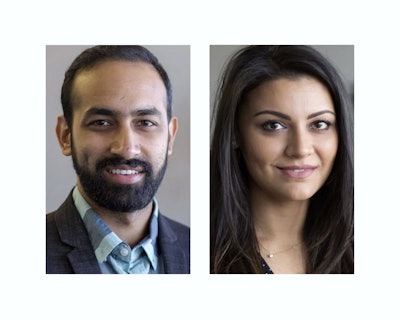 Drs. Abhishek Nagaraj and Anushka Gaglani.
Drs. Abhishek Nagaraj and Anushka Gaglani.
Panelists unanimously agreed that artificial intelligence (AI) and technology will shape the future of dentistry. Nagaraj pointed out that a decade ago, many dental technologies were fragmented, requiring separate systems for practice management, analytics, and human resources tools. Now, integration is the standard.
Richichi emphasized the importance of cloud-based practice management systems for scalability while also highlighting AI-driven business intelligence tools to monitor key performance indicators (KPIs).
Gaglani shared that they use AI-assisted technology for x-ray analysis and Patient Prism to enhance the patient experience by summarizing phone interactions and providing almost-instant AI-supported call coaching.
Leadership, culture, and future trends
Leadership development was a focal point. Richichi acknowledged that building a strong leadership team early is critical, as overburdening key personnel can slow growth. Gaglani noted that defining core values is essential, as it ensures team alignment and commitment to the company's mission.
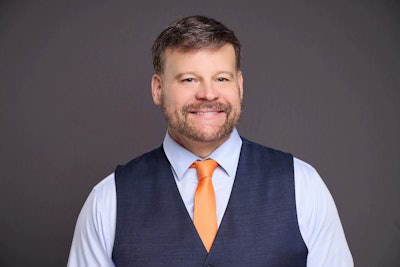 Dr. Mark Doherty.
Dr. Mark Doherty.
Doherty stressed the need to lead by example, avoid micromanagement, and create an environment where staff feel valued. Listening to team input and giving credit where due fosters a positive workplace culture.
As for the future of emerging dental groups, the panelists made the following predictions:
- Increased consolidation within the industry
- Widespread AI adoption, with groups unable to integrate AI likely being left behind
- More sophisticated financial strategies guiding sustainable expansion
Final advice for aspiring group owners
Panelists shared their key takeaways for those looking to start their own dental groups. Here are their insights:
- Adam Richichi: Leverage industry knowledge, avoid costly mistakes by learning from others, and use available technology to streamline operations.
- Dr. Abhishek Nagaraj: Revenue is vanity, but cash flow is king. Profitability, not practice count, should be the focus.
- Dr. Mark Doherty: Standardize processes to create predictable success across locations.
- Dr. Anushka Gaglani: Define your why before expanding. Growth for growth's sake is unsustainable.
The session underscored the reality that scaling a dental group requires a blend of strong leadership, financial acumen, technological foresight, and a deep commitment to patient care. By focusing on these elements, emerging groups can position themselves for sustainable success in a rapidly evolving industry.
Beth Gaddis is the editor in chief at Planet DDS, a dental technology company specializing in cloud-based practice management systems, digital imaging, and dental marketing services. Previously, Gaddis was the marketing director for two large dental service organizations. Prior to entering the dental industry, Gaddis was a journalist for 16 years in a variety of roles, including as a TV news producer at the CBS affiliate in Boston. You can connect with Gaddis on LinkedIn.
The comments and observations expressed herein do not necessarily reflect the opinions of DrBicuspid.com, nor should they be construed as an endorsement or admonishment of any particular idea, vendor, or organization.




